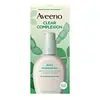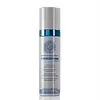What's inside
What's inside
 Key Ingredients
Key Ingredients

 Benefits
Benefits

 Concerns
Concerns

 Ingredients Side-by-side
Ingredients Side-by-side

Salicylic Acid 0.5%
MaskingWater
Skin ConditioningC12-15 Alkyl Benzoate
AntimicrobialCetearyl Alcohol
EmollientDimethicone
EmollientMethyl Gluceth-20
HumectantPPG-10 Cetyl Ether
Skin ConditioningBis-Phenylpropyl Dimethicone
Arachidyl Alcohol
EmollientBehenyl Alcohol
EmollientGlycine Soja Seed Extract
Skin ConditioningGlycerin
HumectantIsoceteth-20
EmulsifyingPolyacrylamide
Cetearyl Glucoside
EmulsifyingArachidyl Glucoside
EmulsifyingC13-14 Isoparaffin
EmollientEthylene/Acrylic Acid Copolymer
Emulsion StabilisingParfum
MaskingLaureth-7
EmulsifyingDisodium EDTA
BHT
AntioxidantSodium Hydroxide
BufferingCitric Acid
BufferingSalicylic Acid 0.5%, Water, C12-15 Alkyl Benzoate, Cetearyl Alcohol, Dimethicone, Methyl Gluceth-20, PPG-10 Cetyl Ether, Bis-Phenylpropyl Dimethicone, Arachidyl Alcohol, Behenyl Alcohol, Glycine Soja Seed Extract, Glycerin, Isoceteth-20, Polyacrylamide, Cetearyl Glucoside, Arachidyl Glucoside, C13-14 Isoparaffin, Ethylene/Acrylic Acid Copolymer, Parfum, Laureth-7, Disodium EDTA, BHT, Sodium Hydroxide, Citric Acid
Water
Skin ConditioningTriethyl Citrate
MaskingCetearyl Alcohol
EmollientEthyl Linoleate
EmollientGlycerin
HumectantPolymethylsilsesquioxane
Dimethicone/Divinyldimethicone/Silsesquioxane Crosspolymer
HumectantGlycol Palmitate
EmulsifyingDimethyl Sulfone
SolventOligopeptide-10
AntimicrobialSalicylic Acid
MaskingSodium Hyaluronate
HumectantArachidyl Alcohol
EmollientCopernicia Cerifera Wax
Pentylene Glycol
Skin ConditioningCetearyl Glucoside
EmulsifyingBis-Ethylhexyl Hydroxydimethoxy Benzylmalonate
AntioxidantBenzyl Alcohol
PerfumingCaprylyl Glycol
EmollientArachidyl Glucoside
EmulsifyingHydroxyethyl Acrylate/Sodium Acryloyldimethyl Taurate Copolymer
Emulsion StabilisingCaprylhydroxamic Acid
Pentaerythrityl Tetra-Di-T-Butyl Hydroxyhydrocinnamate
AntioxidantLauric Acid
CleansingLauryl Alcohol Diphosphonic Acid
Emulsion StabilisingSodium Hydroxide
BufferingWater, Triethyl Citrate, Cetearyl Alcohol, Ethyl Linoleate, Glycerin, Polymethylsilsesquioxane, Dimethicone/Divinyldimethicone/Silsesquioxane Crosspolymer, Glycol Palmitate, Dimethyl Sulfone, Oligopeptide-10, Salicylic Acid, Sodium Hyaluronate, Arachidyl Alcohol, Copernicia Cerifera Wax, Pentylene Glycol, Cetearyl Glucoside, Bis-Ethylhexyl Hydroxydimethoxy Benzylmalonate, Benzyl Alcohol, Caprylyl Glycol, Arachidyl Glucoside, Hydroxyethyl Acrylate/Sodium Acryloyldimethyl Taurate Copolymer, Caprylhydroxamic Acid, Pentaerythrityl Tetra-Di-T-Butyl Hydroxyhydrocinnamate, Lauric Acid, Lauryl Alcohol Diphosphonic Acid, Sodium Hydroxide
Ingredients Explained
These ingredients are found in both products.
Ingredients higher up in an ingredient list are typically present in a larger amount.
Arachidyl Alcohol is a fatty alcohol made from peanut oil. It is an emollient, emulsifier, and thickener.
You'll most likely find this ingredient as an emulsifier in water-based cosmetics.
We don't have a description for Arachidyl Glucoside yet.
Cetearyl alcohol is a mixture of two fatty alcohols: cetyl alcohol and stearyl alcohol. It is mainly used as an emulsifier. Emulsifiers help prevent the separation of oils and products. Due to its composition, it can also be used to thicken a product or help create foam.
Cetearyl alcohol is an emollient. Emollients help soothe and hydrate the skin by trapping moisture.
Studies show Cetearyl alcohol is non-toxic and non-irritating. The FDA allows products labeled "alcohol-free" to have fatty alcohols.
This ingredient is usually derived from plant oils such as palm, vegetable, or coconut oils. There is debate on whether this ingredient will cause acne.
Due to the fatty acid base, this ingredient may not be Malassezia folliculitis safe.
Learn more about Cetearyl AlcoholCetearyl Glucoside is a surfactant and emulsifier. It can be produced from synthetic of natural sources of cetearyl alcohol and glucose.
Emulsifiers help prevent ingredients from separating, such as oils and waters. It can also be used to enhance the texture of products.
As a surfactant, Cetearyl Glucoside helps during the cleansing process. By gathering all the dirt and oils, it allows these molecules to be washed away easily.
Learn more about Cetearyl GlucosideGlycerin is already naturally found in your skin. It helps moisturize and protect your skin.
A study from 2016 found glycerin to be more effective as a humectant than AHAs and hyaluronic acid.
As a humectant, it helps the skin stay hydrated by pulling moisture to your skin. The low molecular weight of glycerin allows it to pull moisture into the deeper layers of your skin.
Hydrated skin improves your skin barrier; Your skin barrier helps protect against irritants and bacteria.
Glycerin has also been found to have antimicrobial and antiviral properties. Due to these properties, glycerin is often used in wound and burn treatments.
In cosmetics, glycerin is usually derived from plants such as soybean or palm. However, it can also be sourced from animals, such as tallow or animal fat.
This ingredient is organic, colorless, odorless, and non-toxic.
Glycerin is the name for this ingredient in American English. British English uses Glycerol/Glycerine.
Learn more about GlycerinSalicylic Acid (also known as beta hydroxy acid or BHA) is a well-known ingredient for treating skin that struggles with acne and clogged pores. It exfoliates both the skin's surface and deep within the pores to help clear out buildup, control oil, and reduce inflammation.
Unlike AHAs (alpha hydroxy acids), salicylic acid is oil-soluble. This allows it to penetrate into pores which makes it especially effective for treating blackheads and preventing future breakouts.
Salicylic acid is also known for its soothing properties. It has a similar structure to aspirin and can calm inflamed or irritated skin, making it a good option for acne-prone skin that is also sensitive.
Concentrations of 0.5-2% are recognized by the U.S. FDA as an over-the-counter topical acne product.
It can cause irritation and/or dryness if one's skin already has a compromised moisture barrier, so it's best to focus on repairing that before introducing this ingredient into your routine.
While salicylic acid does not increase sun sensitivity, it’s still important to wear sunscreen daily to protect your skin.
If you are looking for the ingredient called BHA or Butylated Hydroxyanisole, click here.
Learn more about Salicylic AcidSodium Hydroxide is also known as lye or caustic soda. It is used to adjust the pH of products; many ingredients require a specific pH to be effective.
In small amounts, sodium hydroxide is considered safe to use. However, large amounts may cause chemical burns due to its high alkaline.
Your skin has a natural pH and acid mantle. This acid mantle helps prevent harmful bacteria from breaking through. The acid mantle also helps keep your skin hydrated.
"Alkaline" refers to a high pH level. A low pH level would be considered acidic.
Learn more about Sodium HydroxideWater. It's the most common cosmetic ingredient of all. You'll usually see it at the top of ingredient lists, meaning that it makes up the largest part of the product.
So why is it so popular? Water most often acts as a solvent - this means that it helps dissolve other ingredients into the formulation.
You'll also recognize water as that liquid we all need to stay alive. If you see this, drink a glass of water. Stay hydrated!
Learn more about Water